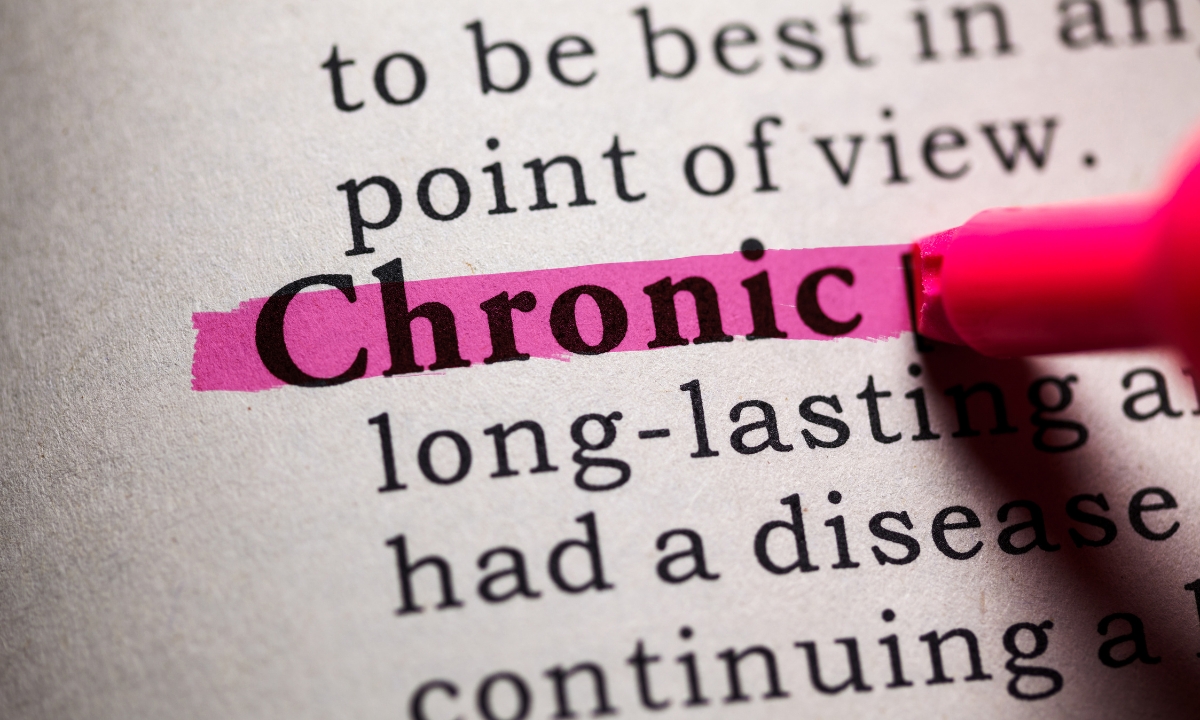Caring for a loved one with chronic back pain can be challenging. You may see them struggle with daily tasks, mobility, and overall quality of life. Chronic back pain affects millions worldwide, including an estimated 8% of adults in the U.S. who experience severe and persistent pain (CDC). It can be debilitating, impacting not only physical health but also mental well-being.
If your loved one is living with chronic back pain, understanding effective pain management strategies can make a significant difference in their life. Let’s explore approaches to help alleviate discomfort, enhance mobility, and improve their ability to live independently, including how in-home care from Reliant Home Care Services can be a vital part of the solution.

Understanding Chronic Back Pain
Chronic back pain is pain that persists for 12 weeks or longer, often despite initial treatment or intervention. It can result from various causes:
- Herniated discs
- Degenerative conditions like arthritis or spinal stenosis
- Injuries or trauma
- Poor posture or repetitive strain
Regardless of the cause, chronic back pain often limits physical activity, making everyday tasks like cooking, cleaning, or even walking difficult for your loved one.
How to Treat Chronic Back Pain
What can you do to help your loved one who has chronic back pain? There are a few different options:
1. Incorporate Physical Therapy and Gentle Exercise
Movement is one of the most effective strategies for managing chronic back pain. Physical therapy can strengthen the muscles that support the spine and improve flexibility. Here are a few gentle exercises that can help:
- Stretching: Regular stretching improves flexibility and reduces tension in the back.
- Low-impact activities: Swimming, walking, or yoga can relieve pain and boost overall health.
- Core strengthening: Exercises targeting the abdominal and back muscles provide better spinal support.
An in-home caregiver trained in mobility assistance can help your loved one stay active by guiding them through these exercises safely and consistently.
2. Focus on Pain Management Techniques
Pain management for chronic back pain often involves a combination of treatments tailored to your loved one’s needs. Applying heat can ease muscle tension, while cold packs reduce inflammation, while gentle massages increase blood flow and alleviate muscle stiffness. Your loved one may also want to talk to their doctor about using over-the counter medications. Nonsteroidal anti-inflammatory drugs (NSAIDs) like ibuprofen can reduce pain and swelling.
According to a study published in the Journal of Pain Research, over 75% of individuals with chronic back pain report improvement with consistent use of these non-invasive methods.
3. Explore Alternative Therapies
Alternative and complementary therapies can provide additional relief for chronic back pain. These include:
- Acupuncture: This ancient Chinese practice stimulates specific points on the body to reduce pain.
- Chiropractic Care: Aligning the spine can relieve pressure on nerves and improve function.
- Mind-Body Techniques: Practices like mindfulness meditation and biofeedback help manage the emotional impact of chronic pain.
Caregivers can assist by coordinating appointments, providing transportation, or incorporating mindfulness exercises into your loved one’s daily routine.
4. Prioritize Ergonomics and Home Modifications
Your loved one’s living environment can significantly impact their comfort and mobility. Simple adjustments at home can reduce strain on the back and make daily activities more manageable.
- Ergonomic chairs with lumbar support
- Adjustable beds or recliners
- Grab bars in bathrooms to ensure stability
- Anti-slip mats and decluttered spaces to prevent falls
In-home care providers can ensure these modifications are implemented effectively, creating a safer and more comfortable environment for your loved one. At Reliant, we have experts who can evaluate your loved one’s living space and make safety suggestions.
5. Support Mental Health and Emotional Well-Being
Chronic pain doesn’t only affect the body—it can take a toll on mental health, leading to feelings of frustration, depression, or anxiety. Emotional support is a crucial part of pain management. There are a number of ways to support mental health:
- Encourage open conversations about their pain and emotions.
- Seek therapy or counseling to address feelings of isolation or stress.
- Provide companionship to reduce loneliness.
In-home care can offer much-needed emotional support. Caregivers are trained to provide compassionate companionship, ensuring your loved one feels heard, valued, and supported.
6. Consider In-Home Care for Comprehensive Support
When chronic back pain limits your loved one’s ability to live independently, in-home care can be a life-changing solution. Professional caregivers provide tailored assistance to help your loved one maintain their dignity and quality of life. Here are a few ways Reliant’s in-home care can help:
- Assistance with daily tasks, such as dressing, bathing, and meal preparation
- Help with mobility, including guided exercises or walking
- Medication reminders and coordination with healthcare providers
- Companionship to combat loneliness and stress
In communities like Murrieta, Temecula, and Menifee, in-home care providers like Reliant Home Care Services specialize in supporting individuals with chronic conditions, including back pain.

Creating a Better Tomorrow for Your Loved One
Living with chronic back pain can be overwhelming, but the right strategies and support can make a world of difference. By incorporating a combination of physical therapy, pain management techniques, alternative therapies, and in-home care, you can help your loved one regain a sense of control and comfort in their daily life.
At Reliant Home Care Services, we understand the challenges you and your loved one face. Our compassionate caregivers are here to provide personalized care that addresses both physical and emotional needs.
Together, we can create a plan that supports their well-being and empowers them to live independently. Contact us today to learn how we can help your family. Let’s make chronic pain more manageable—one step at a time.


